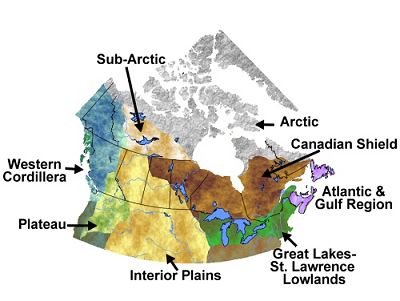First Nations A to Z
Canada First Nations A to Z
Canada aboriginal peoples are classed as Indians (commonly known as First Nations), Métis, Inuit, and Non-Status or Independents.There are currently 634 First Nation communities in Canada speaking more than 60 languages, divided into six cultural  First Nations is the current title used by Canada to describe the various divisions in eight geographical locations.
First Nations is the current title used by Canada to describe the various divisions in eight geographical locations.
Societies of the indigenous peoples, called Native Americans or American Indians in the U.S. They have also been known as Indians, Native Canadians, Aboriginal Americans, or Aboriginals, and in fact are officially called Indians in the Indian Act, which defines the status of First Nations, and in the Indian Register, the official record of members of First Nations.
The largest numbers of Aboriginal people live in Ontario and the western provinces (Manitoba, Saskatchewan, Alberta, and British Columbia). Aboriginal people make up the largest shares of the population of Nunavut and the Northwest Territories.
The First Nations people of Canada are made up of four main groups, excluding the Inuit in the North and the Métis. The collective term for all three aboriginal groups is First Peoples. Each of these main groups contain many tribes, each of which have adapted to their environments and are all independent of each other and slightly different. The four main groups were subdivided by the following geographic areas:

- The Pacific coast and mountains
- The Plains
- The St. Lawrence valley
- North-East Woodlands (broad region, encompassing the woods near the Atlantic/maritimes to the tree-line in the Arctic).
The term is also used to designate bands of aboriginal people for whom reserves have been provided under the Canadian Indian Act. A representative body for Canadian First Nations is the Assembly of First Nations. National Chief of the Assembly of First Nations is Phil Fontaine from Sagkeeng First Nation in Manitoba.
In 2011, 637,660 First Nations people reported being Registered Indians, representing 74.9% of all First Nations people, 45.5% of the total Aboriginal population and 1.9% of the total Canadian population.
The use of the word "Indian" in day-to-day language is erratic in Canada, with some seeing the term as offensive while some aboriginal people prefer it to alternate terminology such as "aboriginal."
Members of First Nations are known officially as Registered Indians if they are entitled to benefits under the Indian Act; a more common term is Status Indian (from treaty status), with Non-Status Indian designating a member of a First Nation who is not entitled to benefits.
Non-Status Indians are also known as Independends or Traditionalists. All members of First Nations who are entitled to benefits are entered in the Indian Register.
Subcategories
- Indian Bands
- First Nation Bands A
- First Nation Bands B
- First Nation Bands C
- First Nation Bands D
- First Nation Bands E
- First Nation Bands F
- First Nation Bands G
- First Nation Bands H
- First Nation Bands I
- First Nation Bands J
- First Nation Bands K
- First Nation Bands L
- First Nation Bands M
- First Nation Bands N
- First Nation Bands O
- First Nation Bands P – Q
- First Nations Bands R
- First Nation Bands S
- First Nation Bands T
- Indian Bands U, V, W
- First Nation Bands X, Y, Z
- Inuit
- Metis
- Non-Status Indians
Article Index:
The Supreme Court of Canada declared Thursday, April 14, 20016, that Canada’s 600,000 Metis and non-status Indians are indeed “Indians” under the Constitution. The decision has raised questions about who qualifies as Metis or non-status Indian, but the answer might be a little complicated.
The Aamjiwnaang First Nation is located on the Sarnia 45 Indian Reserve in southwestern Ontario, Canada. The reserve is south of Sarnia, Ontario on the shores of the St. Clair River, across from Port Huron, Michigan. Aamjiwnaang was originally a Chippewa hunting ground, but the area was turned into a First Nations reserve in 1827, after the British government snatched up an enormous amount of Native land.
Incoming search terms:
- Aamjiwnaang First Nation
The Abénakis de Wôlinak were originally one of the Seven Nations of Canada.
